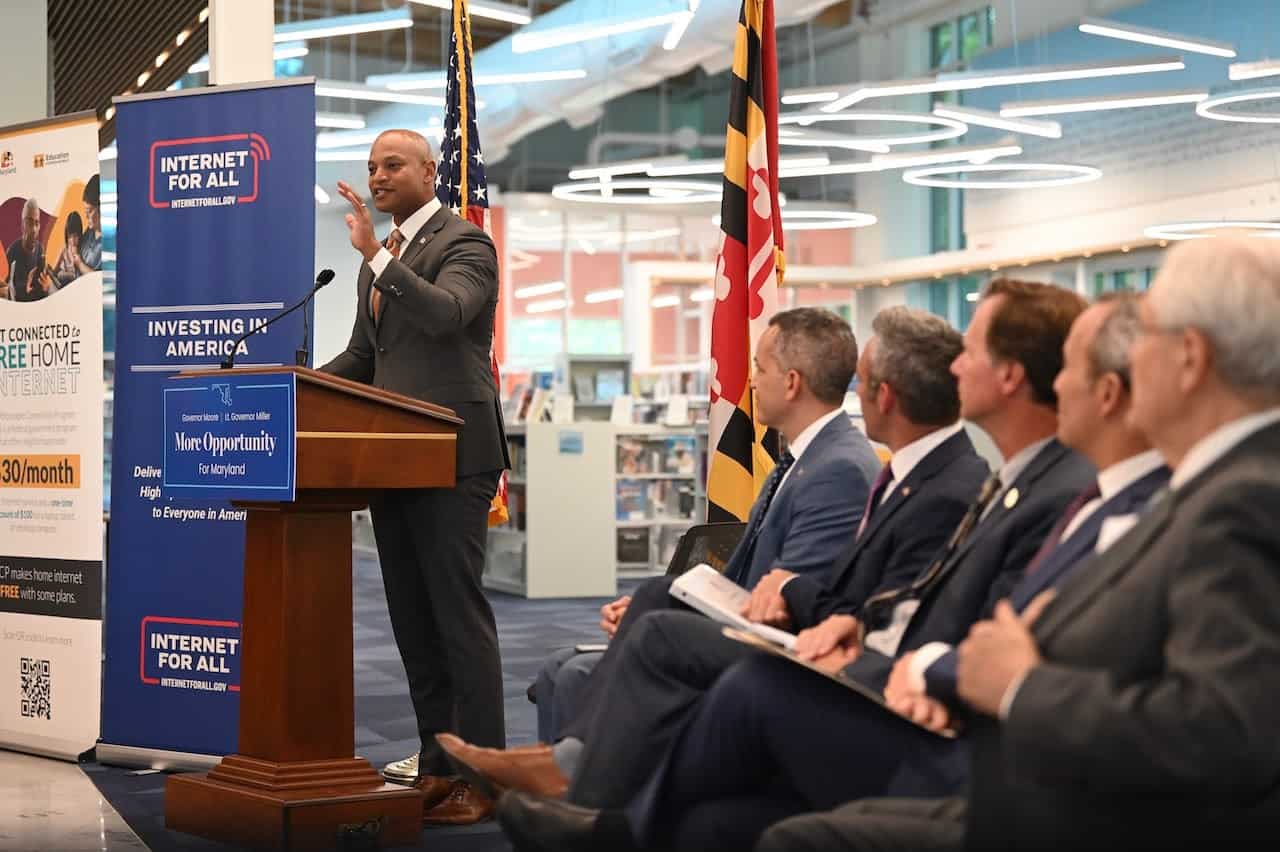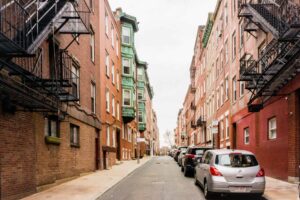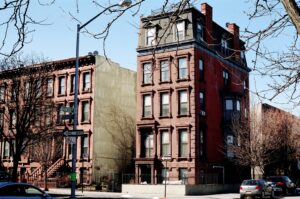ANNAPOLIS, MD – Governor Wes Moore today launched the Maryland ActNow campaign in partnership with EducationSuperHighway, reaffirming the Moore-Miller administration’s commitment to closing the digital divide by extending broadband internet access to all Marylanders and making it more affordable. The governor was joined by U.S. Department of Commerce Deputy Secretary Don Graves, state and local officials, and leadership from non-profit EducationSuperHighway to illustrate the campaign partnership, part of an effort that will also deploy $267 million in federal funding to support Maryland’s broadband infrastructure.
“Access to the internet is no longer optional – it is essential and nobody should be locked out of the internet because of their income or where they live,” said Gov. Moore. “When it comes to getting folks online, our administration is very clear: we will not rest until every single Marylander has access to affordable and reliable internet. The discounts offered under this program and the investments we are making have the power to expand opportunities for Marylanders across the state. Leaving no one behind means getting everyone online.”

ActNow is a public awareness campaign to help increase awareness of and enrollment for the Federal Communications Commission’s Affordable Connectivity Program. The program offers a $30 internet access discount for low-income households. The campaign, a partnership with EducationSuperHighway and 20 community organizations from across the state, will get Affordable Connectivity Program-eligible Maryland families signed up ahead of the start of the new school year.
“Too many people are left behind because they can’t afford high-speed home internet, but 1 in 4 American households now qualify for the Affordable Connectivity Program,” said Founder and CEO of EducationSuperHighway Evan Marwell. “We applaud Governor Moore’s leadership in raising awareness of this critical program to connect Marylanders to the home internet they need to thrive in today’s world and close the digital divide.”
EducationSuperHighway works to close the digital divide for the 18 million households that have access to the internet but cannot afford to connect. The organization focuses on America’s most unconnected communities, where more than 25% of people don’t have internet.
On June 26, Governor Moore announced that Maryland would use more than $267 million in federal funding from the National Telecommunications and Information Administration through the Broadband Equity, Access, and Distribution program—part of President Joseph R. Biden’s Infrastructure Investment and Jobs Act—to bring high-speed internet access to every Marylander. The Maryland Department of Housing and Community Development’s Office of Statewide Broadband is developing a plan for funding deployment, informed by public webinars and outreach conferences held this past spring.
“Today, access to the internet is nothing short of a fundamental need. That’s why we fought for historic funding in the infrastructure modernization law to connect Marylanders in rural and urban communities alike who still lack reliable and affordable broadband,” said U.S. Senator Chris Van Hollen. “I’m glad to see our state leading the way in leveraging these federal investments so we can reach our goal of closing the digital divide once and for all.”
“In Maryland, there are more than 44,000 broadband locations who are underserved or unserved. Each of those locations represents a generations-old farm that can’t harvest using modern tools, a fledgling small business stuck in an analog era, an elderly or disabled person cut off from vital telehealth care, or a young student missing out on life changing opportunities that the digital world can provide,” said U.S. Deputy Secretary of Commerce Don Graves. “Maryland will receive an investment of nearly $268 million to ensure everyone in the state has internet access. Many have tried to bridge that gap to expand broadband infrastructure to every corner of this country, but President Biden is making it a reality, and once again proving that there’s no limit to what this country can do when we work together.”
“Broadband is the utility that will determine economic outcomes in much the same way water and sewer systems have for the past 150 years,” said Maryland Department of Housing and Community Development Secretary Jake Day. “With the NTIA’s quarter billion dollar investment in our state, our goal of closing the digital divide and resolving inequities for countless Marylanders is closer than it’s ever been.”
Since the Maryland Department of Housing and Community Development’s Office of Statewide Broadband was founded in 2017, it has invested more than $300 million into broadband infrastructure and equity programs. That investment has provided high-speed internet access to an estimated 52,000 previously unserved homes and businesses statewide.



